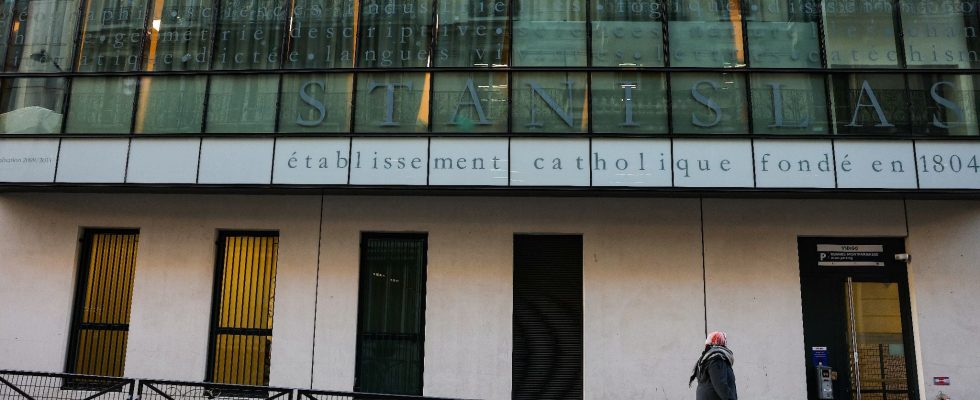Lack of transparency, underestimated spending, lax controls… The list goes on. A parliamentary report that AFP was able to consult on Tuesday, April 2, undermines public funding of private contract education, mainly Catholic, and proposes sanctions in the event of breaches. This text, signed by LFI deputies Paul Vannier and Renaissance Christopher Weissberg, must be presented Tuesday afternoon to the cultural affairs and education committee at the National Assembly.
To establish this observation, the rapporteurs interviewed nearly 60 organizations (administrations, local authorities, networks of establishments, teachers, etc.). Objective: evaluate the public funding allocated to private educational establishments, which educate 17% of students in France (2 million) and are financed “at least 75% by the public authorities”. The question is important given the rush of students in private establishments.
In total, 37% of Parisian students study privately. The Paris academy rises to third position among those where the share of the public is the lowest, just below the academies of Rennes and Nantes, we recalled in L’Express.
Public resources benefiting the sector amount to 9.04 billion euros in 2024, but “despite the sums involved”, the allocation of this expenditure is “not very transparent”, “without a systematically defined and eminently political legal framework”. “, they regret. At the microphone of RMCChristophe Weissberg added: “I think that the main thing is that we have real transparency of what the State spends! The private sector must comply with more controls.”
Insufficient controls
They point out a lack of “budgetary visibility” on the state spending side, particularly with regard to the remuneration of those accompanying students with disabilities, as well as a “lack of accounting clarity” on the local authority side. Public spending devoted to private establishments (95% of which are Catholic) is “in any case underestimated”, add the parliamentarians. So much so that the funding model, which is based on an 80-20 ratio between public and private, is currently “more favorable to private establishments”, according to the report.
Another observation: “the frequency and depth of controls” are “very largely insufficient”. Budgetary controls are insufficient, according to the report which mentions association contracts with the State “tacitly renewed from year to year”, without verification. The document also points to “blind spots” in the educational control of establishments, in particular “the proper application of provisions relating to religious instruction”. Administrative controls are based only on “rare reports”, as for the Averroès Muslim high school in Lille or the Stanislas college in Paris, criticize the deputies who ask that the inspection reports be made public.
“The compensation required from private establishments is far from being up to the level of funding, as evidenced by the deterioration of social and educational diversity,” add the two deputies. To strengthen this diversity, Christopher Weissberg proposes making it compulsory to take into account the social positioning index (IPS) in the “resources allocation model”. Paul Vannier advocates “a penalty mechanism” to reduce allocations when this IPS is higher than that of public establishments in the same sector. On the financing of private schools, the copy therefore needs to be reviewed.
In recent months, private education under contract has been the subject of various criticisms, accentuated by the controversy arising from the declarations of the former Minister of Education Amélie Oudéa-Castéra on the schooling of her children in a private establishment. . Faced with accusations of educational and social segregation, the general secretary of Catholic education, Philippe Delorme, denounced “rearguard fighting” at the end of March. Last February, to show his good faith, he indicated to our colleagues at World : “I dream that the 7,500 Catholic schools will be budgetarily controlled. We have nothing to hide.”
